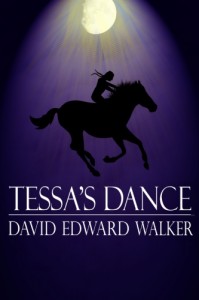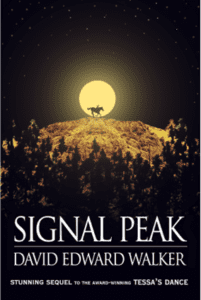Physically, I’ve worked hard for the last year and shed twenty pounds I gained while writing my first two novels.
These days, I set my laptop on the kitchen breakfast counter so as to stand, having been told I burn calories that way, but the truth is I do have a bar stool I cozy into when I can’t take it anymore, or I need to sit my butt down to think.
I know I create better sitting down. I lift a vanity bench onto the desk in our bedroom so I can stand and write in there, too. I go to the bedroom when there’s too much activity around me.
It’s Terrible What a Writer in the Throes of Concentration Will Sacrifice
 Concentration is important, right? I meditate on an irregular basis, a few times a week, Vipassana, insight-oriented, maybe for twenty minutes or so.
Concentration is important, right? I meditate on an irregular basis, a few times a week, Vipassana, insight-oriented, maybe for twenty minutes or so.
It’s terrible what a writer in the throes of established concentration will sacrifice. The Internet and email really distract me if I let them. Sometimes I just flick off my wi-fi. I keep my guitar nearby for breaks—but I have to earn them by being productive.
My newer model Acer laptop does not include an adjustable touchpad. My thumb has many times over many months copied, picked up, pasted, moved, and deleted text while I was writing.
For almost a year, I growled, cussed, even offered to toss my laptop out the window for its touchy touchpad until my loving wife reached her expletive limit, and I realized how my own emotional turmoil could influence support toward purchasing a Mac desktop.
This gorgeous new device sits mostly silent at the corner of the kitchen counter awaiting installation of Microsoft Office, so I can make it my mainframe. That time will arrive soon, Acer, very soon, my pretty.
Yoga Push-Ups Keep Me In Shape
I do what I call my “yoga push-ups” (nearly) daily, five executions of a modified sun salutation combined with planks and stretches. Each one takes about five minutes. I add some pilates a physical therapist showed me and am usually in a sweat when finished.
I try to eat well—yogurt and fruit or scrambled eggs whites with some cheese for breakfast, almonds and fruit, maybe a little more cheese for lunch, a big salad with homemade dressing for dinner with—yep, cheese—and some real (not fake, that is) crab.
Cheese, there’s an obvious weakness. Did you hear saturated fats may have gotten a bum rap? I’m really excited about that. Dates for dessert, maybe some frozen mangoes. I stay away from processed food overall and drink a lot of water.
Breaking Bad Habits
As to bad habits, I drink too much coffee sometimes when I’m deep inside a creation. Whenever I’m asked by a health care provider whether I smoke, I answer “I quit,” because I have a lot of experience doing that.
In my opinion, sucking intoxicating but highly destructive fumes can help writers overcome a block better than drowning in alcohol or sedatives or both. I do admit Chandler was drunk as a skunk throughout writing the script for The Blue Dalia, but he also smoked a pipe, so maybe that was the real ticket.
It’s a research-established fact that nicotine is capable of bringing very good ideas from out of the background during contemplation. Smoking also floods you with free radicals, which seem very appealing to aging hippies, until you discover they aren’t on your side of the wellness revolution.
Vaping (e-cigs) lacks decadence, don’t you think? I’m concerned about technocracy impinging on our lives. Creative people worked very hard to evolve the romantic, forbidden image of a well-lit cigarette. I think they succeeded.
However, three days should be the limit for a binge. It’s not good for you! Perhaps a patch or gum?
Just to clarify, I don’t smoke. I quit.
Emotional Wellness—Creation vs. Promotion
I believe most creative people are fiercely independent, and this serves our art, while making professional aspirations particularly hard emotionally.
There’s a big difference between creating something very pleasing to yourself, and the idea of making something with the hope lots of people will buy it. On the way to that kind of goal, we’ll have to show our fresh and intoxicating work to a business somebody whose opinion really matters.
For creative people, this is like bringing the proverbial drunken sailor for a visit with the captain’s daughter. Expect a razor before ever getting a decent shave. These are patriarchal images, and I mean no offense.
Writers are sensitive types if they’re any good, and this quality is the antithesis of the personal armor it takes to self-publish, self-promote, and self-market independently.
I really don’t think things are too different right now for new writers in traditional publishing. Nobody will help you, and unless you’ve got some entourage of people invested in your success, nobody cares about you.
Well, your mother, loved ones, and friends, okay. They can’t do what really needs to be done to build your career; you have to do that yourself. And all the “self” endeavors involved can represent poison to the ego.
“Do ‘they’ like my book (and by extension, me)?”
“How come so-and-so got reviewed/picked/placed/bought/sold/blurbed and my (far-superior) book (heart and soul, my baby) gets treated so poorly?”
Or maybe more simply, “Where’s the money??”
Such mind-traps get self-imposed. Beyond them, every now and then, the creative person does get cheated outright. Either pick up and move on, or fight like hell. But don’t get immersed in that chaos.
It’s not a fair world, so participate in what has to be done to make your work more visible and viable, and then get the hell out and create more and better works.
I’m continually revisiting my own motives around all that. Being creative is an important means through which I try to do something meaningful, even helpful, in the world, whether by provoking thought or feeling or by offering relief or entertainment.
Yes, I’d like some money for that.
In U.S. society, art and artists are terribly devalued even though everyone depends completely upon us to create whatever you like to look at or listen to. The current climate dictates circumstances where Fifty Shades of Grey is viewed as literature. Need I say more?
Look for external reinforcement for more genuine art you’ve made in such a hostile world and then expect a sock in the teeth. Thus, I do focus on trying to make a living, but regularly reconnect with my own broader sense of purpose than that world can offer.
There are lots of invitations toward self-delusion as I try to sell material but, fortunately, more opportunities to get out of my own way.
* * *
Well before writing two award-winning indie novels, Tessa’s Dance and Signal Peak, David Edward Walker was a performing singer-songwriter with three indie CDs. He played at colleges, coffeehouses, and house concerts under the pseudonym, “David Folks” and drawing “audiences into a warm space of feeling and introspection” (Music Hound Essential Folk).
His work as a psychologist with the Yakama Nation community inspired Tessa’s Dance, which won a 2013 Independent Publisher Book Award (IPPY). The sequel, Signal Peak, took a 2013 IndieFab Book of the Year Award and was a finalist in the 2014 Nancy Pearl Literary Awards. Steven Newcomb of Indian Country Today calls the novels “extremely well done . . . two books that deal with all the issues of tragedy, psychological healing, and cultural and language revitalization that are necessary in the wake of centuries of genocidal efforts to destroy our Nations and Peoples.”
For more information, please see David’s website.
 Tessa’s Dance: A strong-hearted Yakama Indian girl and a mixed-blood psychologist ride a wild horse past methamphetamine and gang violence to discover friendship, healing, and the importance of tradition.
Tessa’s Dance: A strong-hearted Yakama Indian girl and a mixed-blood psychologist ride a wild horse past methamphetamine and gang violence to discover friendship, healing, and the importance of tradition.
The fragile bond between Tessa Miyanashatawit, a fifteen-year-old Yakama girl, and psychologist Dr. Ret Barlow has begun to heal both of them. Things fall apart when Tessa is arrested for alcohol abuse. Barlow forces her into treatment, and she vows never to speak to him again.
Volume I of II in the Medicine Valley Series. Available at Amazon.
 Signal Peak: (Volume II in the Medicine Valley Series) From his new office in an old vet’s clinic, psychologist Ret Barlow consults with Yakama client, Emily Miyanashatawit, about younger brother, Franklin. He’s been rushed into True Native Kings and doesn’t come home anymore.
Signal Peak: (Volume II in the Medicine Valley Series) From his new office in an old vet’s clinic, psychologist Ret Barlow consults with Yakama client, Emily Miyanashatawit, about younger brother, Franklin. He’s been rushed into True Native Kings and doesn’t come home anymore.
Older sister Tessa’s too preoccupied, auntie Leila’s working all the time, and Elisi’s getting pretty old. The tragedy that tore the family apart last spring left a gaping hole big enough to fit a 1954 Chevy BelAir through.
The real trouble begins when a mysterious driver takes the wheel and aims the car at all of them. Available at Amazon.

